A Chat with ‘Leave It to Beaver’s Stephen Talbot: ‘I May Be a Dirty Rat, But I’m Not a Dumb Rat’
by Jeff TamarkinIn the first half of our interview with Stephen Talbot, who, in his childhood, played Gilbert Bates in nearly 60 episodes of Leave It to Beaver, the documentary filmmaker and broadcast journalist told us what it was like growing up in Hollywood, what the stars of the program were really like, his life post-Beaver, and why he was afraid of “Eddie Haskell” even in real life.
Here, in the second and final segment, Talbot, born February 28, 1949, dishes on Beaver and Wally Cleaver’s other friends, offers his views on the ups and downs of being a child actor, and muses on the sociological impact of the show.
But first, it’s back to Eddie…
Best Classic Bands: There were two wild rumors that circulated post-Beaver. The first one was that Jerry Mathers was killed in Vietnam. The other one was that Ken Osmond, who played Eddie Haskell, became Alice Cooper.
Stephen Talbot: And, worse for Ken, that he was a big-time porn star, the model for the character in Boogie Nights. He actually did grow up in real life to become a cop.
And he was shot once on the job.
Exactly. The bullets bounced off his belt and his badge. But he was a cop and then, all of a sudden, the rumors started that he was this porn star. VHS copies of porno tapes were put out with “As seen on Leave It to Beaver.” So it became a thing and he actually sued a bunch of porn companies. Of course, by his own account, he was teased unmercifully at the police station in Van Nuys.
Watch a compilation of Beaver clips featuring Eddie
Tell us about Frank Bank, who played Wally’s friend Clarence “Lumpy” Rutherford. His character was as dumb as a rock but in real life, he turned out to be a financial genius who represented many of the cast members in their real-world investments.
Maybe I was taking the characters too seriously, but the idea that I’d give my money to Lumpy? No way! But, yeah, he did become a successful banker and wrote a book in which he boasted about a huge number of women he slept with based on his Beaver fame. Even then, I thought, that has gotta be the best name ever for a comic sidekick: Lumpy. All I knew, as the character Gilbert in the show, and as a real kid, is that if I saw Eddie and Lumpy, trouble was coming.
Beaver’s friends Richard and Whitey weren’t as well-defined as Gilbert, at least to me.
Gilbert, as I look back, was supposed to be Eddie Haskell light. In the very first episode I was in, “Beaver and Gilbert,” he is an obnoxious little kid who gets in a fight with Beaver. And most of the time throughout the series, he is the wise guy who gets Beaver in trouble and then ditches before the heat comes down on him. There’s the episode where Gilbert makes Beaver do a funny face in the middle of the class picture and [Beaver] gets in trouble. And then he goes, “Why didn’t you do it, Gilbert? You said you were going to do it.” And then Gilbert goes, “I may be a dirty rat, but I’m not a dumb rat.” That’s the signature Gilbert line. Gilbert was mean and got Beaver in trouble too.
But, especially in the last two years of the series, he became the character who understood Beaver and they were close friends and they bonded around a couple of things. That was the evolution of that character. Gilbert became more and more defined and it changed over time as we grew up. Whitey [Stanley Fafara], I feel, had the role in the best episode ever, the one with [Beaver getting stuck in] the soup billboard. That’s a classic. He had his moment as the kid talking Beaver into crawling up and falling into the soup, which I thought was a wonderful metaphor of a suburban kid falling into an advertisement.
A slight, funny tangent on that story, is that I saw an interview that Richard did where he reminded me that that role was written for Gilbert, which makes a little more sense. It was obviously one of those episodes I turned down because I was busy in school or not available. Then it was offered to Richard and he was doing something and he couldn’t do it. So finally it ended up with Whitey being in what I would say is the best episode.
Did the actors ever get to ad lib or was it was all scripted?
All scripted.
Do you ever watch the reruns, and is it weird to see yourself as a kid?
I do, and honestly, I’ve had ups and downs about how much I’ve related to this show over the years. But I do now watch episodes that I haven’t seen in 50, 60 years. For me, it’s a trip to see whether I was acting well in this episode or not. But most of the time, I’m really drawn into the plot. Mostly, for me, it’s like a home movie. I’m watching the episode and I’m thinking, oh, was that the day we went to the studio commissary and saw Alfred Hitchcock? Was that the day Richard brought one of his monster masks?
Was there a lot of socializing off the set?
There was. Jerry and I became friends. There were occasions when I would go to his house and spend the night with his real-life family. As we grew up, we both got interested in girls. I remember one of the last times I actually saw Jerry in person, decades ago, was at a twist party. He later he got into a band.
Richard, just to talk about him for a second, was the other guy I got to know a bit. His real name was Richard Correll, and his father was the co-creator of Amos ’n’ Andy. It was the most popular radio show in America for a long time. Charles Correll was his name and he and the other guy who was the co-creator [Freeman Gosden] wrote almost all the episodes, including the TV show, which was fairly short-lived. Toward the end they hired two writers. The only other people who wrote lots of Amos ’n’ Andy episodes were Joe Connelly and Bob Mosher, who then created Leave It to Beaver and were the producers of Leave It to Beaver and the principal writers of most episodes. It blew my mind when I discovered that two white guys who had written a famous and controversial TV show with an all-Black cast—with genuine humor but painful racial stereotyping—would go on to write an all-white cast TV series set in suburbia. Now that’s subject matter for someone’s PhD thesis in American cultural history!
Joe Connelly was next door neighbors with Charles Correll, who was an older father, and Richard was his son. Connelly knew him, and Richard was doing some acting, so he hired him to work on the show. Richard would come on the show and you had to have an adult as your guardian on the set at all times. It was usually the mothers, but I remember his dad would come on the set. He was kind of a distinguished, older-looking rich gentleman. Richard was just a live wire and had money, but was fascinated by old Hollywood. At the time he was a total horror movie freak, and Universal Studios, which was where we were doing Beaver, was the big monster movie studio, and they had, in their wardrobe, a costume department, all the Frankenstein masks and all this amazing stuff. Richard started a private collection of monster movie memorabilia, and one of our fun things to do was, during breaks shooting or after work or before work or at lunch, we would go into this wardrobe department and look at all these amazing costumes.
Once they were doing the movie Spartacus on the Universal lot and—this is a sick, weird Hollywood story—for all the battle scenes, blood spurting and limbs being chopped off, in true Hollywood fashion, the studio hired a lot of people who had missing limbs. Then they would fit them with prosthetics, and the prosthetics would be loaded with something that looked like blood, so when somebody chopped off an arm, it would fly off, and you’d walk into the costume and wardrobe department with all these old monster things, and here were all these limbs hanging.
So it wasn’t all work; you were able to be kids off the set.
We were professionals. My dad [actor Lyle Talbot] always stressed have fun, do it as long as you like it. But remember, it’s a job. We all knew that we were working in an adult world. There were some times when there was pressure on the set, too many takes. The Leave It to Beaver set was really friendly and low-key compared to most. But even then, there were tensions. The one guy who would rile us up and cause trouble was Richard. He would get us to flub lines.
There was one director, I’ll never forget this. His name was David Butler and he directed many episodes of Beaver and he had once been a big-time movie director. He had directed a lot of Shirley Temple films. He was a big man and an old pro. In one episode, we were supposed to be running around, jumping over couches in the Cleaver living room, and Richard riled us up and we were just wrecking scenes. The director finally called us over and he was so nervous, the poor guy, he lit a cigarette and put it into his mouth and started to smoke it the wrong way. I remember looking at this guy and thinking, oh my God, this is really serious. We’d better chill here.
When you left acting in your teens, you downplayed that part of your life. At what point did you say, “OK, I was on Leave It to Beaver. I’m going to let the world know that that’s me?”
Back in the day, I would be on all these different shows, so it’s not like people remembered me from the [Beaver] series. But people recognized my dad all the time, so I was totally used to being out with my family and people coming up to my dad and asking for his autograph.
But toward the end of the Beaver series, people started to recognize me and I wasn’t super into it, but it was kind of cool. Then the series went off the air, I went to high school and life went on. And then I went to college and unbeknownst to me, Beaver went into reruns. And all of a sudden, in my college dorm, in the late ’60s, on the East Coast, in the common room, people were watching the new show, Star Trek, or they were watching reruns of Leave It to Beaver. So I would walk into a room and people would go, “Oh my God, you’re Gilbert.” Then it became a thing.
Then, of course, the whole counterculture thing started, the protests, and I grew my hair long and I was militantly against the war, and the last thing I wanted to be known for was being a kid actor. There’s one episode in which Jerry and I are spotting an older girlfriend who Wally’s going out with, and she is in a bar drinking a beer and smoking a cigarette. And I say a great line to Beav: “You know what they call a girl like that? She’s a woman of the world.” And I literally had a girlfriend at the time, who was watching Leave It to Beaver, and she was thinking, oh my God, who are you? My wife, who I’ve been married to forever, grew up in South Africa, under apartheid where there was no television. So she came to America and, unlike every other baby boomer friend of mine, she had no consciousness of television, let alone Leave It to Beaver. I thought that was just terrific, and it was probably one of the reasons we got together, I like to joke.
The problem for me came in 1980. I was an on-camera reporter for [San Francisco television staton] KQED and I’d be on a news show doing something serious, and my first documentaries were about nuclear weapons and antisemitism, heavy topics. And the news anchor, this pioneering Black newswoman who knew nothing from Leave It to Beaver, would then take phone questions and I’d get these cards that would say, “Isn’t that Gilbert from Leave It to Beaver?” And she would go, “What the hell? Who are you?”
This was also when the, quote, New Leave It to Beaver series started. I turned it down—the only guy who turned it down, and I was bad-mouthed throughout Hollywood a little bit for that—because I was just starting a career as a serious broadcast journalist, and I couldn’t possibly be flying off to Hollywood and appearing in a sitcom. So there was a period when I laid very low, and didn’t talk about it. But now, I’m reconnecting with Tony [Dow, who played Wally] and Jerry a little bit, and looking back at some of these episodes, which at the time I really liked doing. Now, for me, it’s a nostalgia trip.
Watch an episode of Leave It to Beaver
Today, the show is so emblematic of its time that somebody might say, “That person lives a real Leave It to Beaver existence,” and everyone knows what that means. Or, “That woman is a real June Cleaver.”
I’ve thought about this a lot and I’ve written a couple of little essays about being on Leave It to Beaver. One day soon, I hope, I’ll probably write a little more. Obviously, it’s become this cultural reference point. It’s funny in a way, because I was born in Hollywood and then my family moved to Studio City in the mid-’50s when I was starting first grade. And it felt like moving from black-and-white to Technicolor. This was suburban America, a quiet, upper middle-class street, big school across the street that I used to use as my playground until I ended up going there for high school.
Literally, in this all-American-looking neighborhood, almost everyone on the block worked in what we called the business. There were stunt men, directors, writers. There was a guy named Marty Milner, who was one of the people on Route 66. He lived a couple of blocks off. My favorite was an exceedingly tall man with the largest Adam’s apple I’ve ever seen in my life. And he was the voice of Tony the Tiger [of the Kellogg’s Frost Flakes commercials]. He had this bass voice. We’d always go over there and ask him to do the Tony the Tiger voice. He’d go, “Come on, kids, I’ve done it a million times,” but then he’d do it for us.
Studio City, part of North Hollywood, was called Studio City because it was literally built around a studio that the Keystone Cop Mack Sennett had started. That studio then became Republic, where people like Ronald Reagan and my dad did many a B-movie. That became the studio where we started doing Leave It to Beaver and it morphed, and is to this day a CBS studio. Mary Tyler Moore Productions was there—many a series, but it was a relatively small studio.
That was the center of Studio City. So, it was just the world that I grew up in. And in some ways, it was a Leave It to Beaver place. What was different about that show, if it had one big distinction, in addition to Eddie Haskell, is that it was a sitcom about American families told from the perspective of kids. It was the first one where kids were the center. So for baby boomers, that’s like the most narcissistic show. It’s like, oh, that’s us; that’s how we act. It was written by somewhat older people, and every now and then there’d be phrases in the dialogue where I’d go, “Hey, no one talks like that anymore,” although the writers were obviously really talented.
So part of me thinks what the series did at its best was to reflect what it was like for white, suburban kids in America, in the late ’50s and early ‘60s, to be kind of loose in the streets. We all rode bikes and after school, my mother didn’t care where I was, as long as she didn’t hear I got into trouble and as long as I was home for dinner.
In that sense, Beaver, as a series, got that right. What it didn’t get right, and maybe it was asking too much of any series to do this, it didn’t reflect America as a whole. That used to trouble me a lot about the show. It got one aspect of America right but it didn’t get the big picture right. I mean, we were doing this in the middle of the Cuban missile crisis, when the whole world could have been blown to smithereens. That was not ever a theme in the show.
There was also a bit of a dark side to the show that is rarely talked about. For example, Ward [the family patriarch] was always threatening to hit his kids. You never see him do it, but it’s talked about a lot.
Yeah, and here’s another one that has stayed with me all this time. There’s an episode in which Beaver is building a little race car at his house, a soapbox derby kind of car. He needs wheels for it, and he finds out that a girl in his class is throwing away a big old doll buggy, an old-fashioned baby carriage. There are wheels on it. So he goes over reluctantly because he wasn’t supposed to like girls, and she gives him the wheels, but they can’t get them off the carriage. So she goes, “Just wheel it back to your house. You’ll have tools in your garage.”
The whole episode then turns into Beaver wheeling this buggy and it turns into a horror story. He passes a little girl who starts mocking him and a man who yells out, “What’s happening to kids today, this generation, boys with doll carriages?” It keeps cutting back to the family, and Wally has a line, talking to his mom, saying, “There’s nothing worse than this. The only thing worse would be being caught outside in your underpants.” And Eddie, in a brief moment of genuine concern, says to Barbara Billingsley [June Cleaver, the boys’ mom], “Well, I certainly hope no one slaughters the little fellow.” So it’s this terrifying thing. Beaver throws the baby buggy away, because he doesn’t want to be seen with it, and Gilbert spots it in the ditch and picks it up and takes it home and puts it on his racing car. But it was just one of those things, showing gender confusion and what could happen.
Paul Petersen of The Donna Reed Show has long lobbied against child actors, and there have undeniably been some real tragedies. Is this a practice that should be eliminated or toned down?
I know that Paul has been a campaigner about this. I don’t know specifically what he’s against so I shouldn’t comment directly on that. But, I will say, some kids have had great lives come out of this. Look at Ron Howard. He’s had one of the most amazing careers. So, it is possible. I do know some tragic stories. Poor Whitey, Stanley Fafara, was one of the worst. He had no adult career and then he got into drugs and became a heroin addict and he died young. Those kinds of stories are really sad and Hollywood’s rife with them.
My dad knew Jackie Coogan, who was the kid when Charlie Chaplin had the Tramp. Coogan made a fortune working with Charlie Chaplin, and as an adult, went to collect his money and found out that his parents had stolen it from him, blown it all. So there’s a law, that’s still in effect, that unofficially is called the Coogan Law in California, where a certain percentage of kids’ income from acting has to be put aside by his guardians or parents until he or she is an adult. My dad knew Coogan and they often worked with Lucille Ball. I worked with him on a couple of shows. He was a really nice, funny man. But that was a tragic story. He had many, many hard years. So I would say this: TV shows and movies need kids to act in them, but I hope all these kids have good parents, good families and people looking out for them because it’s a tough business.
Watch Stephen Talbot in two episodes of The Twilight Zone
Finally, I’m curious about the role that music played in your life during those acting years. Did being in Hollywood give you access to musicians and what was going on in the rock and roll world?
Hollywood had nothing to do with my connection to music, none at all. But I just loved music, in particular rock and roll. Growing up in L.A., I loved the band Love, with Arthur Lee. I went to a high school dance where they played, and then I would see them on Sunset Strip. I would go to the Whisky a Go Go. I saw the Doors at the Whisky a Go Go. I saw the Beatles at the Hollywood Bowl and at Dodgers Stadium. I went to the first Rolling Stones concert at what was the old L.A. Lakers downtown basketball gym. And I went with my girlfriend—and this was one of the highlights of my life—to the Monterey Pop Festival and just had a spectacular weekend. Right before that, I saw the Supremes at the Coconut Grove. Then in college I got into putting on concerts, with the Muddy Waters Blues Band. I met and hung out with Muddy Waters. And I put on a concert with Richie Havens.
I went to Wesleyan [University], in Middletown, Connecticut, halfway between Boston and New York, and Wesleyan had a lot of money so a lot of bands would play there. Janis Joplin came there on her first East Coast tour. I met and hung out with her after that show. Then, flash forward to 10 years ago, I did two music specials called Soundtrack: Music Without Borders. People can still see them on PBS video; they’re still streaming. They would be stories about all kinds of music. So music has always been a huge, important part of my life, and I’ll forever live with late ’60s, early ’70s music.
Leave It To Beaver is available to purchase or stream here.

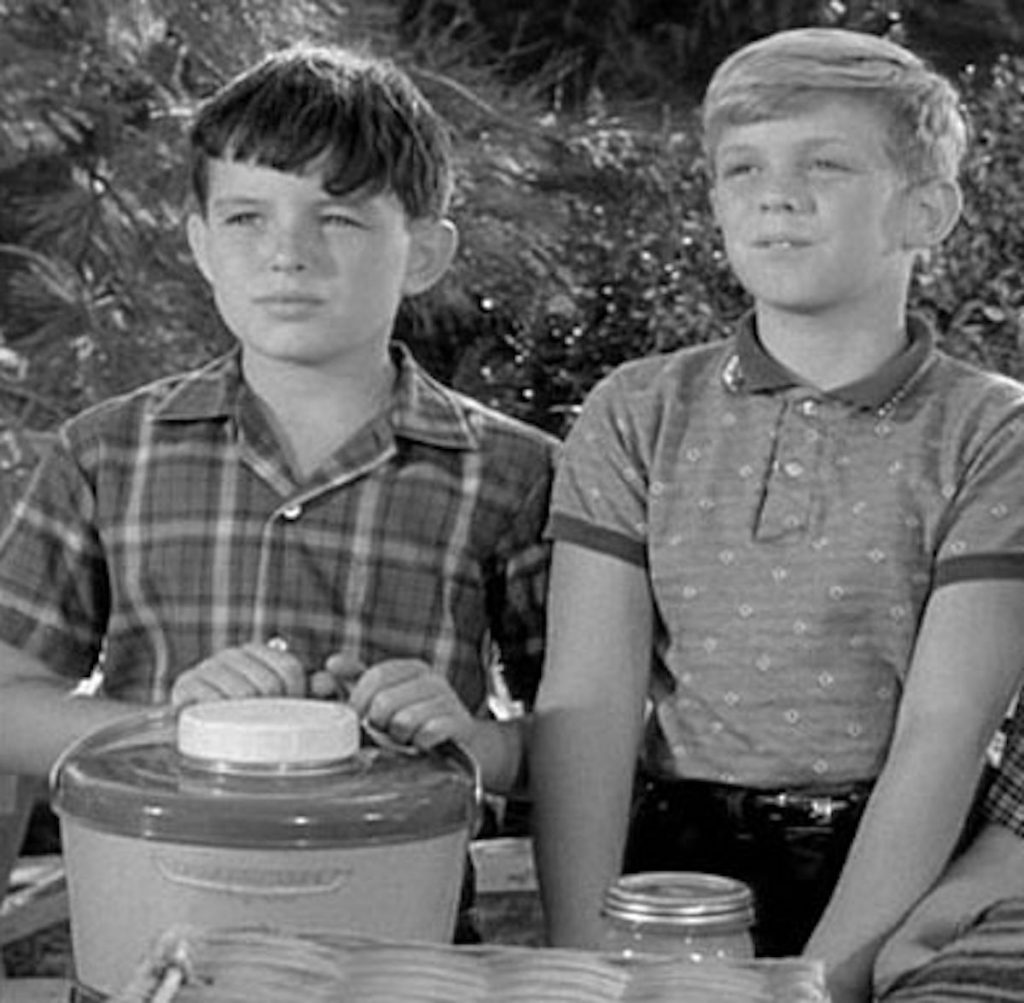
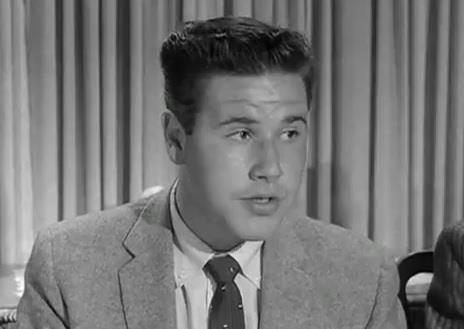
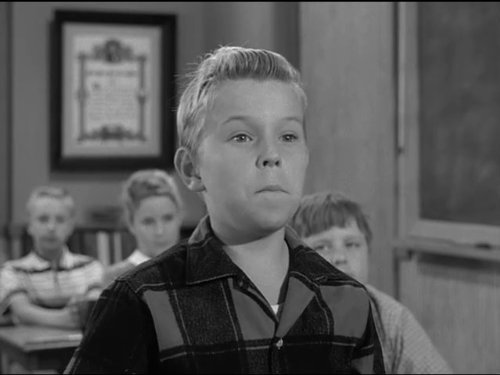
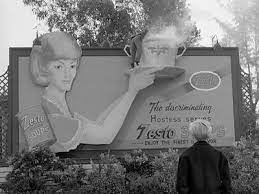
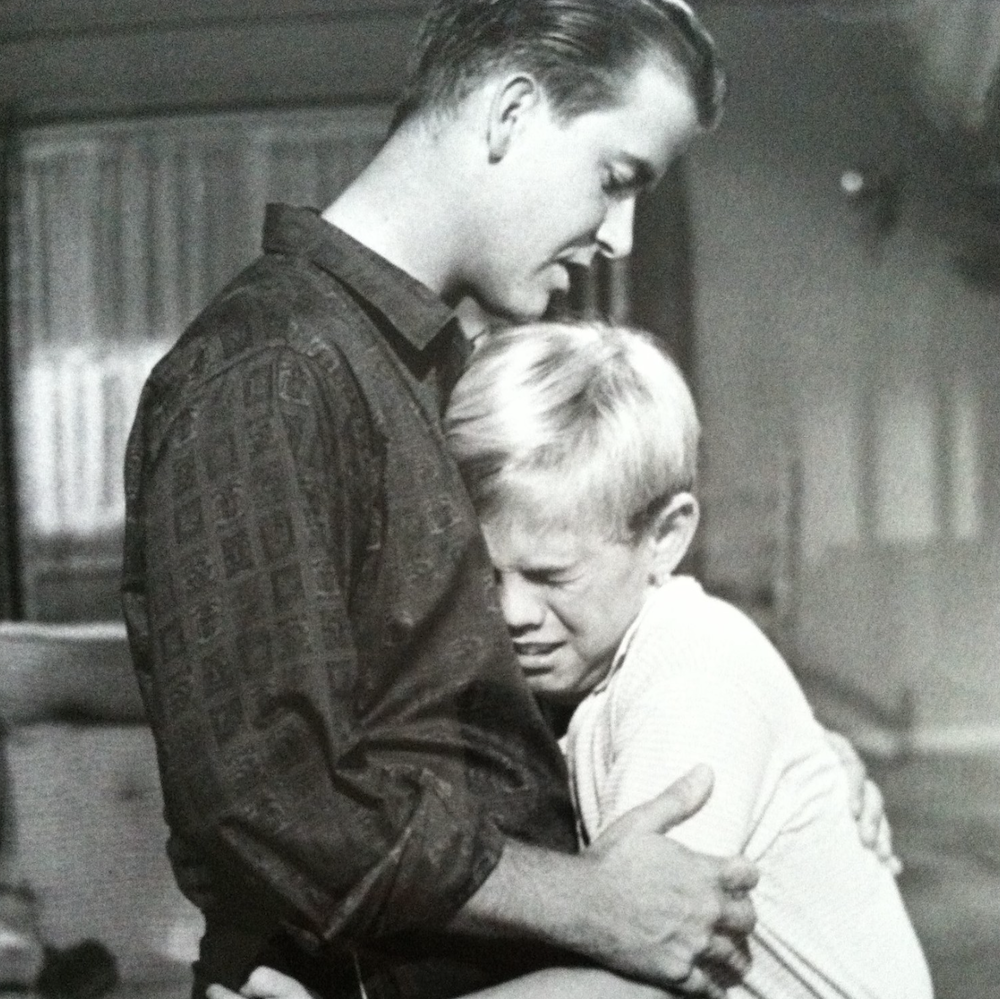
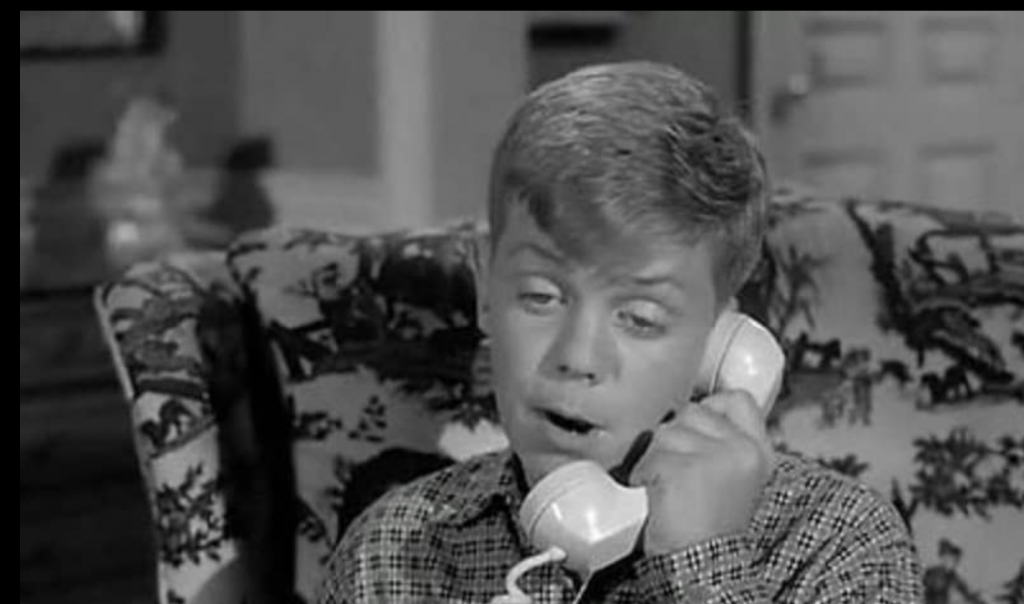
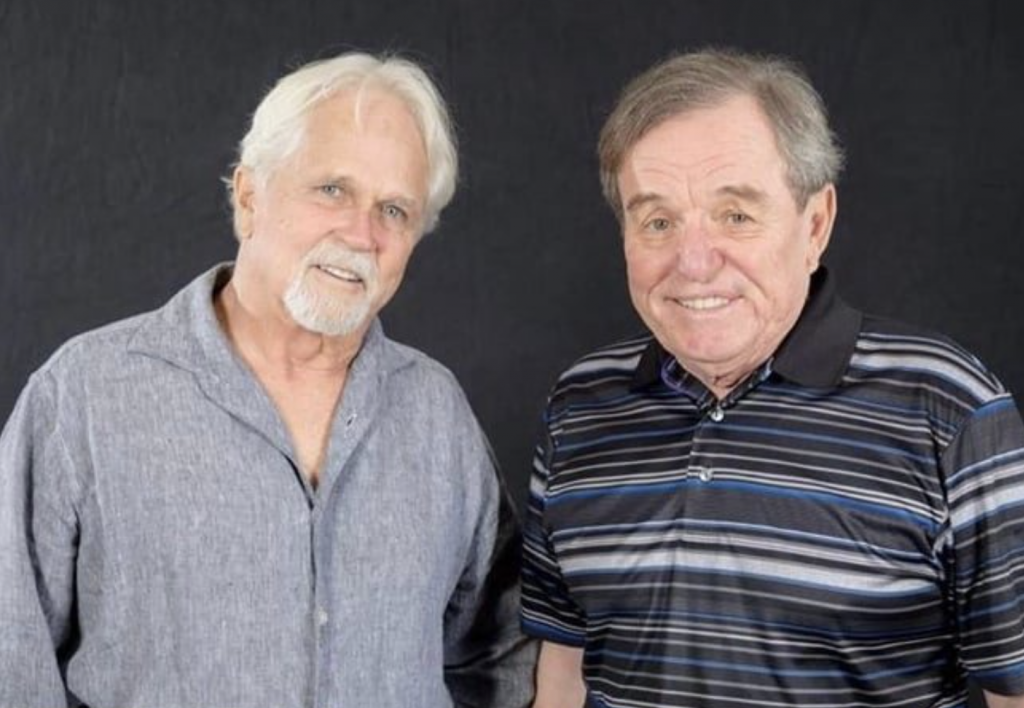



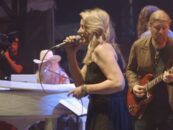


14 Comments so far
Jump into a conversationGreat article and terrific information/insight from Talbot as usual. I do depart from his gender confusion perspective he described in one episode…one can try to hard to connect modern perspectives with former dots that did not exist (I would argue) or be interpreted. Nice try though.
It was a pleasure being interviewed by you, Jeff. You mentioned the rumor about Jerry Mathers being killed in Vietnam. Here’s an article I wrote about that: https://www.kqed.org/arts/13809968/jerry-mathers-died-steve-talbot
Hi Steve, thanks for being willing to do this interview and for the article you wrote about Jerry Mathers. Gilbert was my favorite character on the show, I thought the way you portrayed Gilbert was so funny and real. Congratulations on your successful career and marriage. That’s rare in your business!
Thank you, Cindy! (You happen to have the same name as one of my sisters. She’s a medical doctor.)
How in the world are there only two comments on this absolutely wonderful interview. Thank you Mr. Talbot for sharing your views and being so open about the show. Your insights are amazing and I loved learning about your love for music.
I hope to one day interview you myself for an upcoming book I’m writing on Leave it to Beaver. I will try to reach out to you or your representatives in August at the latest.
Thanks again for a great interview!
Please keep us posted when your LITB book is published. Many of the stars are still among the living so grab ’em now!
I will Jeff. Thank you for that request! And I’m going to try my best.
You are correct. I’ve interviewed some, and hope to reach out to others quite soon. Thanks again for this interview with Stephen Talbot!
Thank you, Brian. Sorry for my delayed reply. You can contact me via my Facebook account or IMDB.
Just saw your comment today and have now sent you an email. Thank you.
I love litb in reruns. I had a similar middle class life. Growing up in the 1960s was pretty good for my friends and I. Looking back on our lives has a contented enjoyable nostalgia feeling, memories make life worth living. Thanks Stephen for that terrific interview.
leave it to beaver is a really important show in tv history. keep in mind that barbara/june wore heels because the boys were rapidly growing and were getting too tall for her have much of a height advantage AND that she wore the pearls because of the natural shape of her neck created shadows while filming due to the lights. in the early seasons ward often loses his cool and actually yells at the boys, but later says he is sorry. he also often gives bad advice, but later realizes his mistake and apologizes such as when ward told wally how he/wally should conduct himself while running for class president. in the episode beaver and andy, leave it to beaver became the first tv sit-com EVER to deal with alcoholism. also, in the episode guest starring barry gordon LITB became the first ever sit-com to deal with divorce and it’s effect upon children. if you listen to wally and the beaver they often describe the parents of other children as being ‘yellin’ fathers’ or even ‘hittin’ fathers’ thus the cleavers were the exception and not the rule to parenting in mayfield.
as for the amos and andy radio show there is NO excuse for that, but as eddie murphy pointed out many decades ago, he (murphy) had no problem with the TV show since ALL of the characters including doctors, etc. were played by black actors.
i i do not ever recall ward threatening to hit his sons. wally and the beaver do refer to other fathers as ‘hittin’ fathers’ or ‘yellin’ fathers’. in one episode it is mentioned that beaver got a spanking once for spilling ink on the floor of ward’s den. it is not a part of an episode’s plot, but rather a conversation mentioning the previous event. in the episode the grass is always greener, wally and the beaver go to the trashman’s house and experience first hand how the other half lives. during the run of the series 90% of the American population was white. yes, there is only one black person shown on the series and yes she is a maid, BUT she quickly catches on to eddie haskell and even gives eddie the business. to have a minority actor appear on a network show used to be called progress, but now to only have 1 is considered racism. don knotts, sheldon leonard and andy griffith all fought to have black actors on the andy griffith show, except for crowd scenes the network would not allow it due to current events in the nation. finally years later a black actor was given a large role as a guest star. gomer pyle never addressed the viet-nam war. the network would not allow it due to the political climate of the era. to disparage LITB, a show presented from the point of view of a child, about NOT adressing the cuban missle crisis is not a valid point.